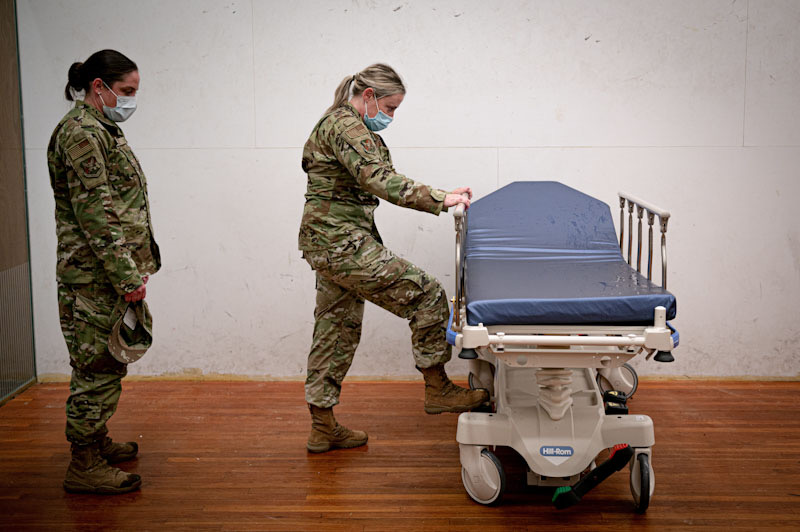
JOINT BASE MCGUIRE-DIX-LAKEHURST – Refugees have arrived at the Joint Base as part of Operation Allies Refuge. The evacuation includes Afghan residents who fled their country following the takeover of that nation’s government by Taliban forces.
Last night, Task Force McGuire-Dix welcomed the first group of at-risk Afghans to the base. According to a statement from the military facility, “the Department of Defense, through U.S. Northern Command and U.S. Army North, and in support of the Department of State, is now temporarily housing Afghan evacuees at four military installations in the United States – Joint Base McGuire-Dix-Lakehurst, New Jersey; Fort McCoy, Wisconsin; Fort Bliss, Texas; and Fort Lee, Virginia.”

“We expect these arrivals to continue throughout today, and the coming days. Task Force McGuire-Dix continues to build capacity here as U.S. Army North, U.S. Northern Command and the Department of Defense work to build additional capacity at Fort Lee, Fort Bliss, Fort McCoy, and potentially other military locations, as required,” a base spokesman said.
Operation Allies Refuge is an effort first announced in July to support relocations of those Afghans interested and eligible along with their immediate families who supported the U.S. Government.
At the direction of the Department of State, due to privacy considerations, military installations in the United States hosting newly arrived Afghans are closed to the news media. The spokesman added, “the Department of State has the lead regarding the immigration processing of the Afghans at our stateside military bases.”
“In support of DOS, U.S. Northern Command is the lead combatant command for the efforts here in the United States and our respective Task Forces at these installations are providing to the Afghan evacuees temporary lodging and basic needs, transportation, and medical screening services, in a safe and secure environment,” the statement added.
Governor Phil Murphy said that Afghan refugees would be cycled through Dulles Airport Virginia and later transported to the joint bases. “We’re honored to do our part.” The governor sent a letter to President Joe Biden requesting that refugees be sent to New Jersey.
The refugees will be provided essential support and will complete a special immigrant visa process.
The Taliban takeover led to a quick exodus of people from Afghanistan after their government fell. Thousands of people were evacuated via Kabul airport since the beginning of the rescue effort on August 22. Those evacuated include a mix of western government staff, agency workers and Afghan residents who worked with western governments. This includes those who are perceived to be at risk due to the nature of their work such as translators, human rights activists and journalists.

The United Kingdom and Germany have also been involved with rescuing over a thousand evacuees. Turkey removed 550 people while France and Italy evacuated around 500 people. Other countries included Australia, Canada, the Czech Republic, Denmark, Poland and Switzerland.
According to the United Nations refugee agency, more than 550,000 Afghans have been internally displaced since January.
Around 3 million people left since the start of the year and around 300,000 left their homes due to the security conditions in the last two weeks.
The Taliban refused a request by U.S. officials to extend the August 30 deadline which would have allowed for more time for the exodus.






